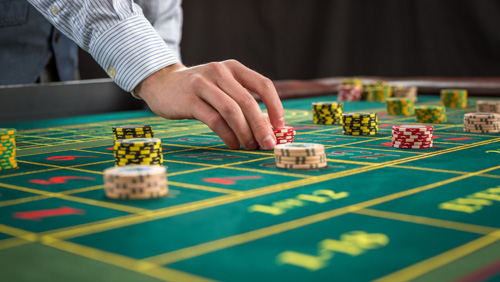Governments around the globe have taken a serious interest in trying to curtail the amount of money laundering that is supposedly plaguing the gaming industry. Canada and British Columbia have been busily enacting legislation to prevent repeats of the negative publicity surrounding questionable activity at the River Rock Casino, and the U.S., the UK and Australia have also been exploring changes in policies to help clean up the system. Japan is now joining the fight, and recently ordered changes in reporting guidelines at casinos in the country.
 Operators of future casinos in Japan will be obligated to report customers who exchange chips worth $9,500 (¥1 million) or more. Regulators are responding to concerns that the casinos will be havens for the exchange of “dirty money” that is used for money laundering or financing terrorism. The new casinos are slated to be opened in integrated resorts in an effort to bring in more international tourism to the island nation.
Operators of future casinos in Japan will be obligated to report customers who exchange chips worth $9,500 (¥1 million) or more. Regulators are responding to concerns that the casinos will be havens for the exchange of “dirty money” that is used for money laundering or financing terrorism. The new casinos are slated to be opened in integrated resorts in an effort to bring in more international tourism to the island nation.
Anyone who buys or cashes chips worth $9,500 or more will have to provide their name, address and birth date to casino operators. This information will then be turned over to a casino management committee, which will be created at a later date by the government. That entity will catalog the data and investigate any instances that raise flags, such as repeated high-dollar exchanges.
Japan isn’t the first country to introduce these money-laundering countermeasures. In the U.S., Nevada regulators require that casinos follow the same guidelines, and in Singapore the amount is less, at roughly $7,600. Macau has also placed restrictions on exchanges, with Large-Amount Transaction Reports being required for exchanges by junkets of more than around $62,000. Suspicious Transaction Reports are more vague, and are required for any transaction that is thought to be associated with money laundering.
Money laundering is big business. In 2012, a report by the World Bank and the International Monetary Fund (IMF) estimated that money-laundering activities amounted to as much as $3.6 trillion per year. That report brought about changes to multiple industries, including gambling, corporate reporting and banking.
Japan is set to re-enter the gambling market with the new casinos. Almost all forms of gambling, except pachinko and horseracing, have been prohibited. However, a change of heart by the Japanese parliament has opened the doors for casinos to enter the country. If everything goes according to plan, Japan anticipates an increase in tourism that jumps by 16 million visitors by the year 2020, up from the 24 million recorded in 2016.